 'Jin' named the word of the year by cross-strait netizens
'Jin' named the word of the year by cross-strait netizens Chinese scientific expedition goes to build new Antarctica station
Chinese scientific expedition goes to build new Antarctica station
 Chinese naval escort fleet conducts replenishment in Indian Ocean
Chinese naval escort fleet conducts replenishment in Indian Ocean 17th joint patrol of Mekong River to start
17th joint patrol of Mekong River to start China's moon rover, lander photograph each other
China's moon rover, lander photograph each other Teaming up against polluters
Teaming up against polluters
HAVANA, Dec. 30 -- The Cuban government continued to implement reforms in 2013 as part of its efforts to modernize its social system and spur economic development.
All year through, officials continued to make progress on more than 300 reforms spearheaded by Cuban leader Raul Castro, who said in the middle of the year that the preliminary results were encouraging, though much more remained to be done "to modernize our economic and social model."
The most anticipated reform came in January, when the government passed a new immigration law scrapping requests for Cubans to produce exit permits and letters of invitation before traveling abroad.
May was a month of major economic reforms as the government agreed to give more autonomy to state-run companies. It also began to create several non-agricultural cooperatives, or some 200 semi-private enterprises, most in the field of transportation, construction, and the recycling, processing and marketing of raw materials.
In June, another important reform was implemented, as the state-owned Telecommunications Company of Cuba opened 121 cyber cafes in the country, where Cubans could surf the Internet.
The move brought the Internet closer to Cubans. Until then, Internet access was limited to foreign visitors or residents, and mostly concentrated at hotels, as only Cuban professionals in certain fields were authorized access, including academics, journalists, doctors or artists.
In July, Cubans began to discuss a new labor law, which was finally approved by the National Assembly of People's Power on Dec. 20. The law particularly addresses the needs of the nearly half a million Cubans who are now self-employed, as those working in the country's budding private sector are called.
Perhaps the biggest news of the year, announced in October, was the gradual move to unify Cuban dual currency system into a single one.
Jose Luis Rodriguez, the former economy minister, said the country would take at least three years to comply with the monetary union, because it was a "complex issue intertwined with the process of an ongoing program of structural transformations, and its gradual implementation will take time."
Cuba held the International Fair of Havana in early november, where Rodrigo Malmierca, minister of foreign trade and investment, presented the Special Development Zone of Mariel to potential foreign investors.
The development zone, located at Mariel Port, west of Havana, is a key part of the country's strategy to modernize its economy by attracting companies with incentives and tax breaks, generating exports, creating jobs, and promoting the transfer of technology.
The latest data predicted a 2.7-percent GDP growth in 2013, below the the previous estimate of 3.6 percent, mostly due to a fall in foreign revenue earnings, incomes of manufacturing and construction.
Still, most sectors registered increases compared to 2012, Economy Minister Abdel Yzquierdo said.
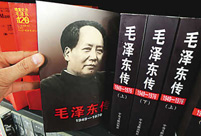 Commemorate 120th birth anniversary of Mao Zedong
Commemorate 120th birth anniversary of Mao Zedong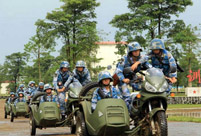 Female soldiers of PLA Marine Corps in training
Female soldiers of PLA Marine Corps in training Chinese cities to have a very grey Christmas as smog persists
Chinese cities to have a very grey Christmas as smog persists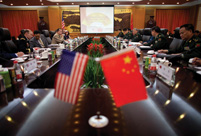 China and U.S. - the national image in each other’s eyes
China and U.S. - the national image in each other’s eyes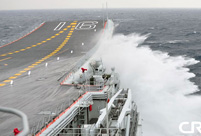 The Liaoning's combat capability tested in sea trial
The Liaoning's combat capability tested in sea trial Chinese pole dancing team show their moves in snow
Chinese pole dancing team show their moves in snow Rime scenery in Mount Huangshan
Rime scenery in Mount Huangshan Ronnie O'Sullivan: My children mean the world to me
Ronnie O'Sullivan: My children mean the world to me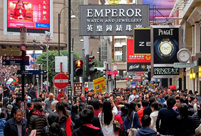 Shopping in Hong Kong: a different picture
Shopping in Hong Kong: a different picture The buzzwords in 2013
The buzzwords in 2013 Top 10 domestic news of 2013
Top 10 domestic news of 2013 Red crabs begin annual migrations in Australia
Red crabs begin annual migrations in Australia Artifacts retrieved from West Zhou Dynasty
Artifacts retrieved from West Zhou Dynasty Aftermath of Volgograd railway station blast
Aftermath of Volgograd railway station blast Fleet hits targets in training
Fleet hits targets in trainingDay|Week|Month